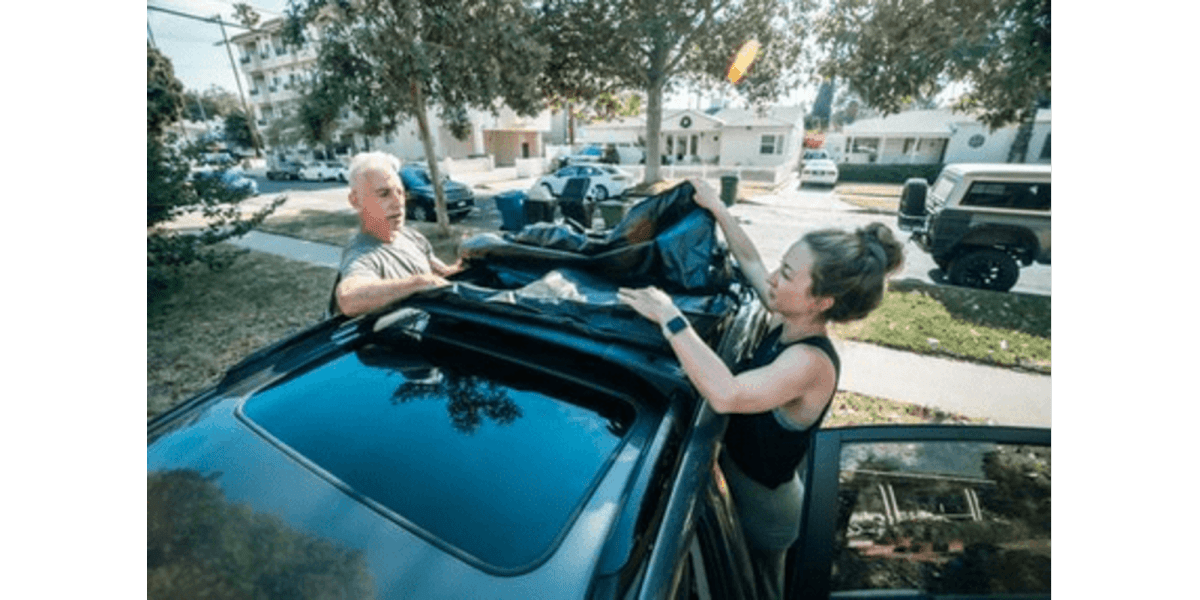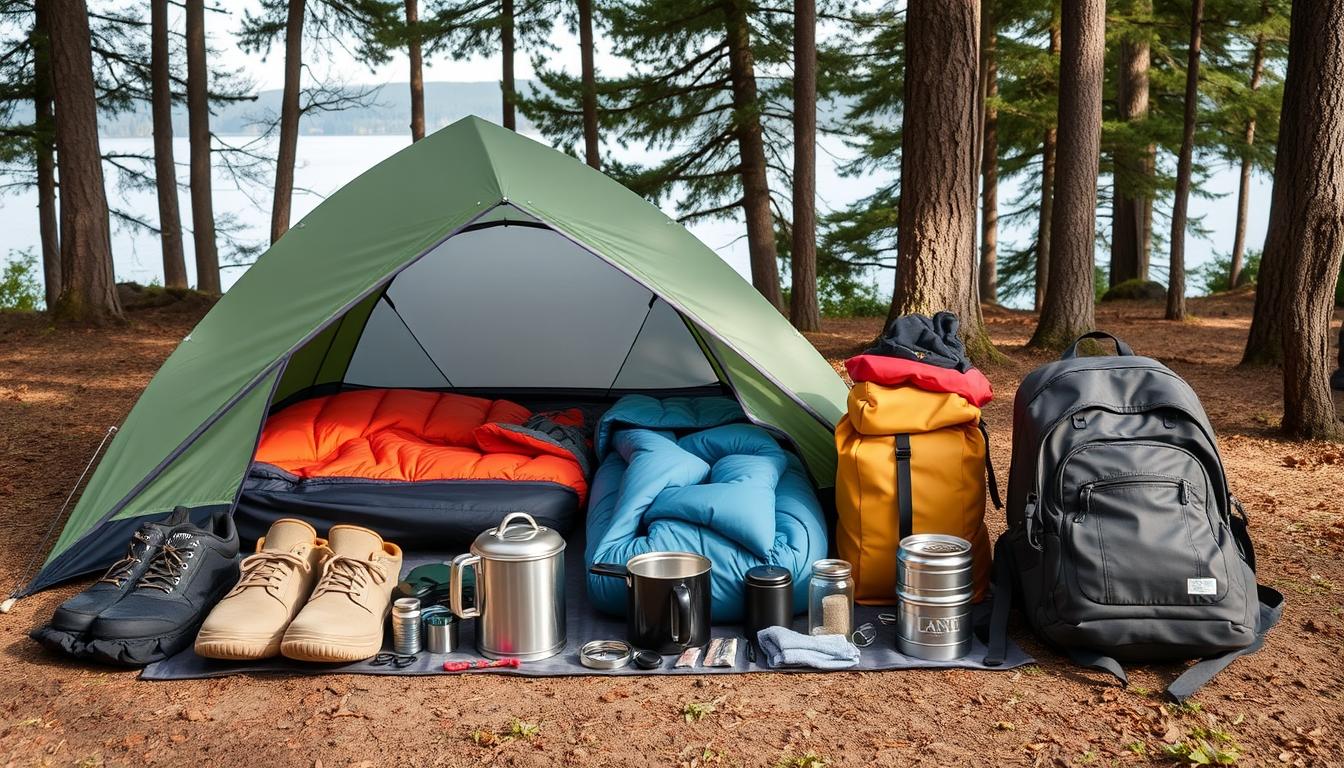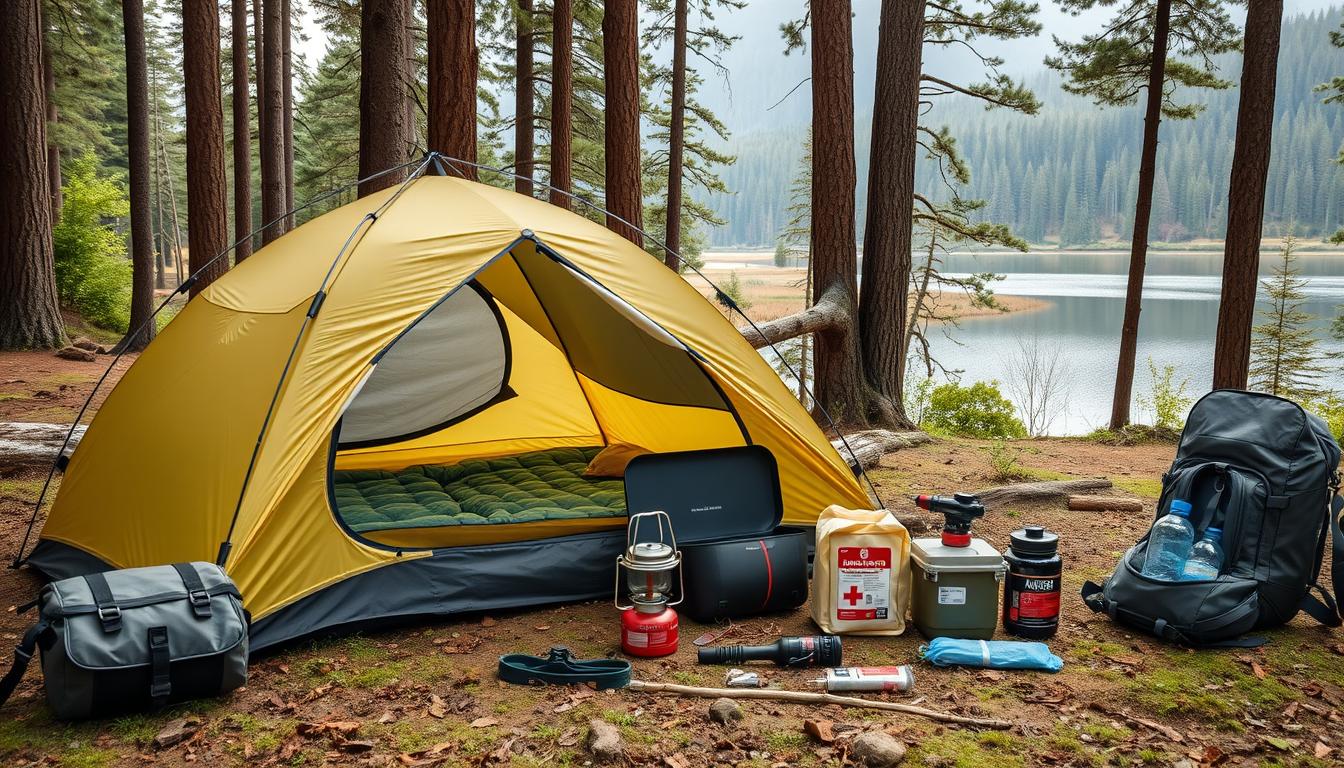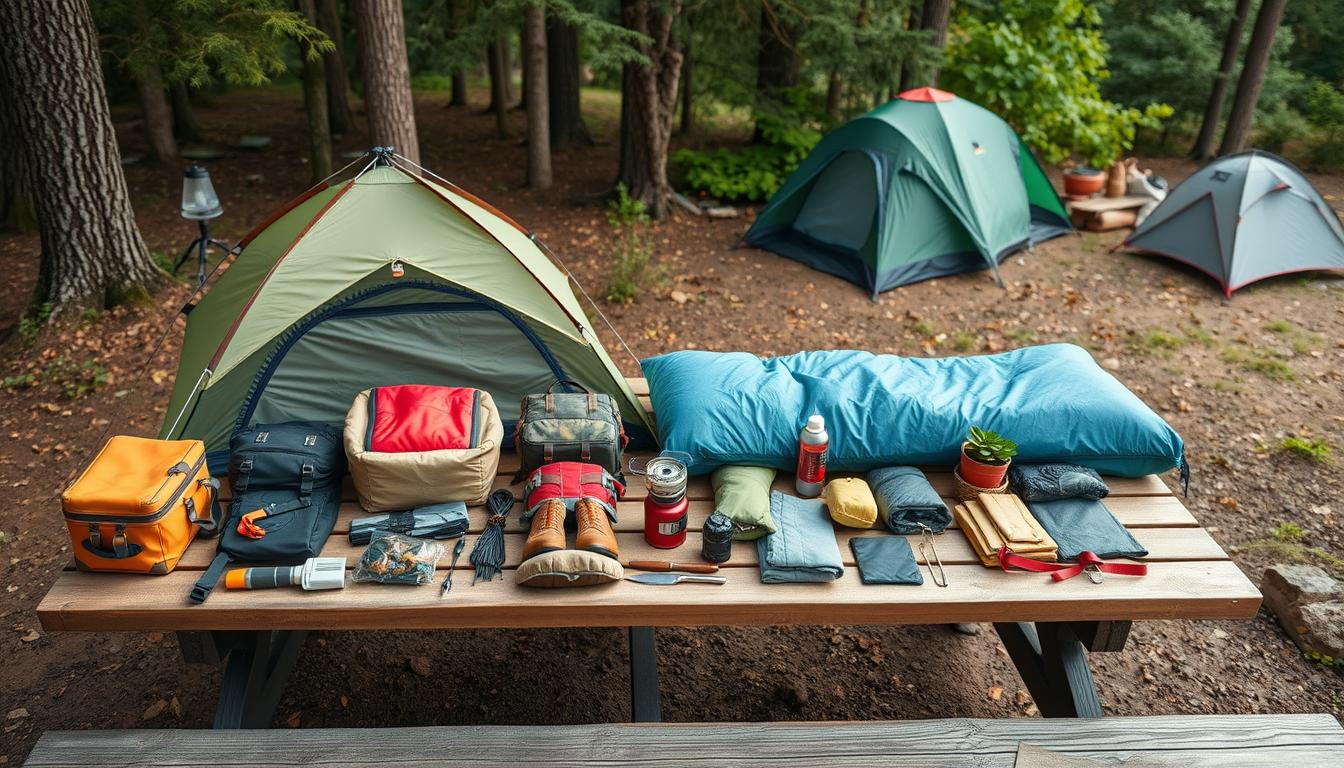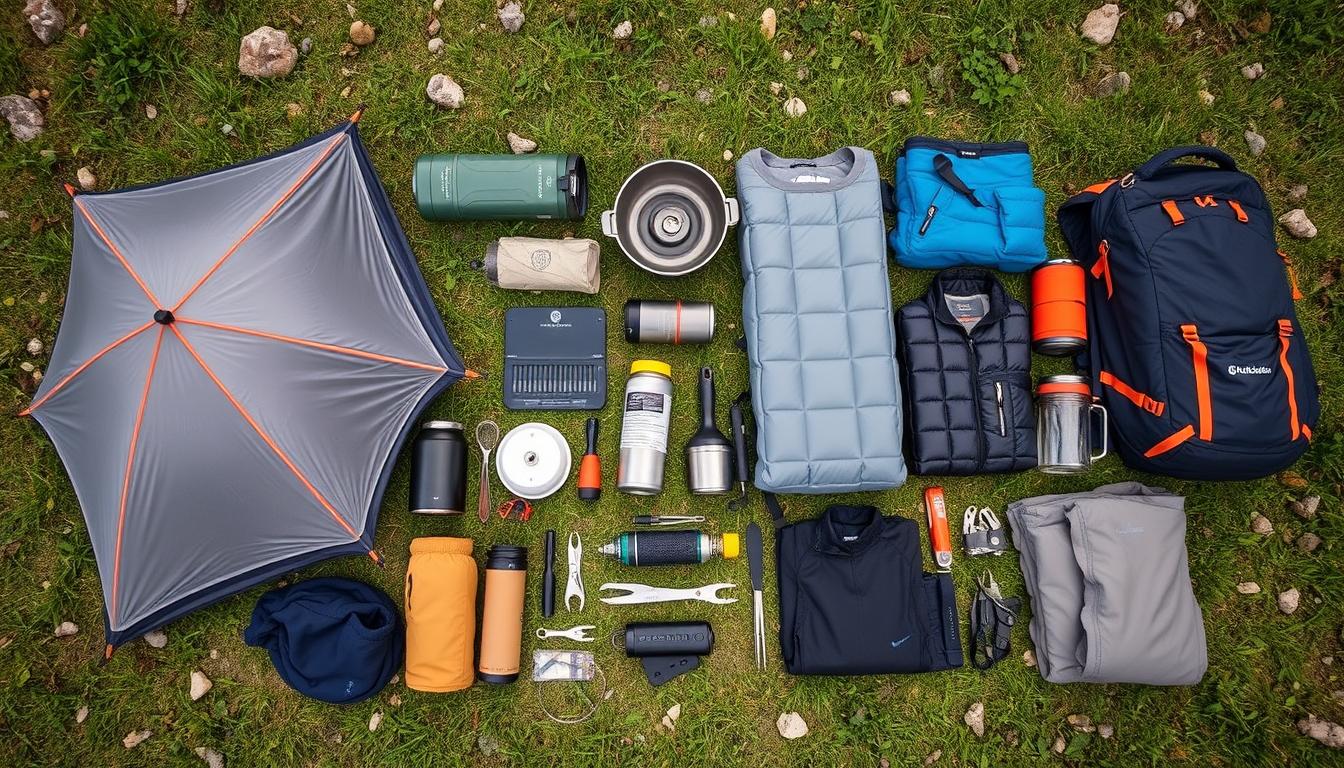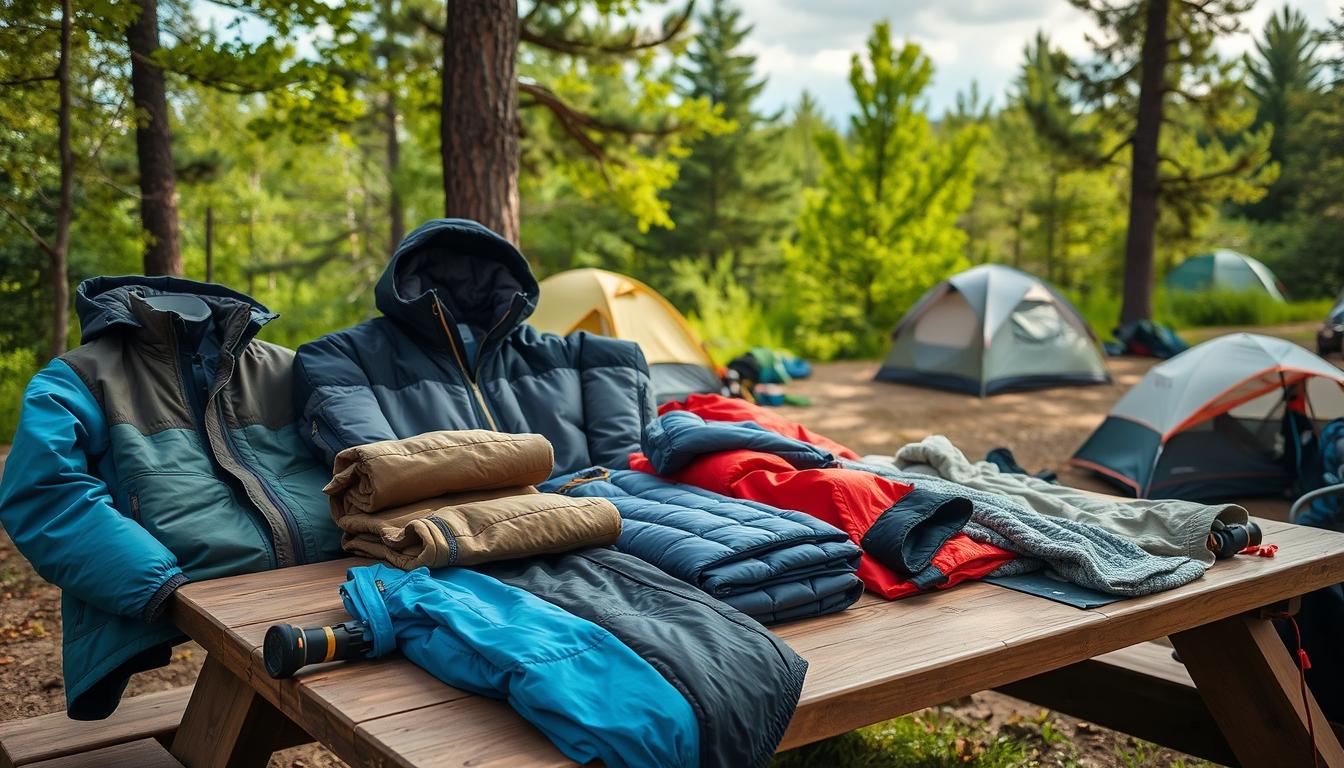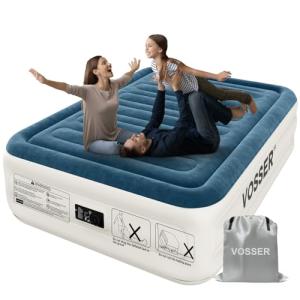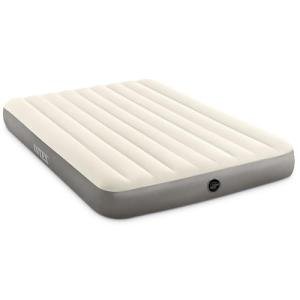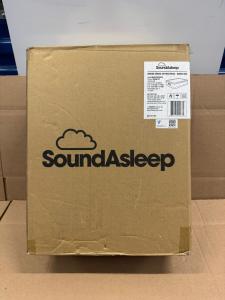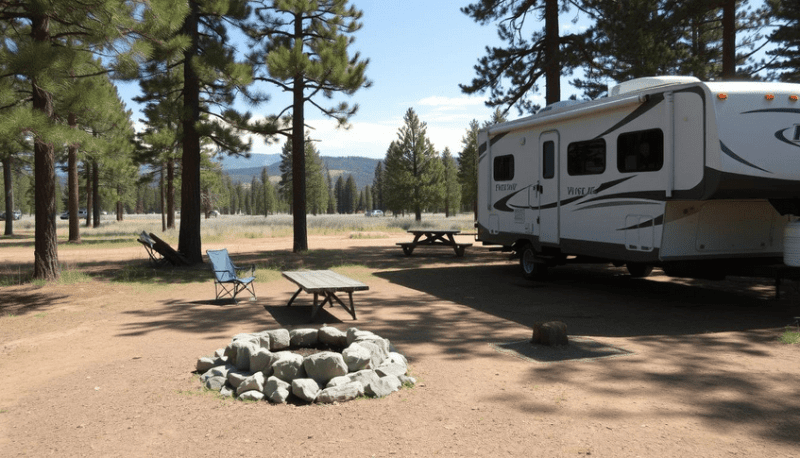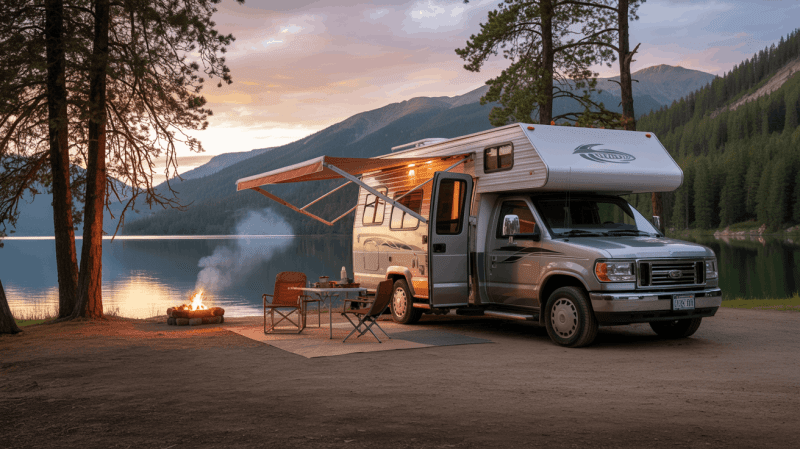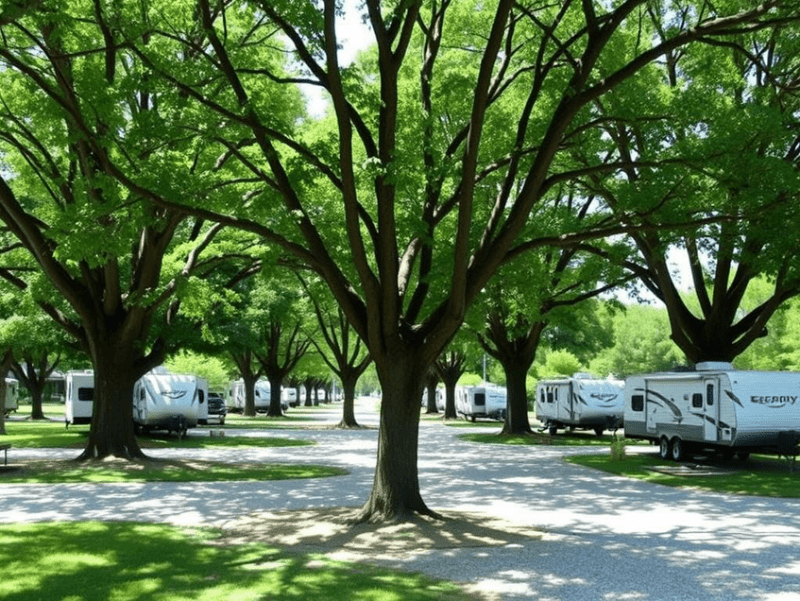Camping is a favorite outdoor activity, with over 80 million campers in the United States. It also welcomes 7.2 million first-timers each year. One big challenge is learning to pack lightly and efficiently.
Overpacking can turn a great camping trip into a stressful one. The secret to a good camping trip is not to bring everything. It's about choosing the right items that make your trip better.
Studies show packing for a trip can be more stressful than the trip itself. By focusing on what's truly needed, you can enjoy a more relaxed outdoor adventure.
Key Takeaways
- Pack smart, not heavy - prioritize essential camping gear
- Understand the difference between necessary and unnecessary items
- Consider your specific camping style and trip duration
- Use weight guidelines for backpack loading
- Test your gear before the actual camping trip
- Focus on versatile, multi-purpose equipment
- Remember that less can often mean more comfort
Understanding the Impact of Overpacking on Your Camping Experience
Camping can become hard when you carry too much gear. Overpacking turns a fun outdoor trip into a tough journey. In fact, 60% of campers say they bring too much, which hurts their trip fun.
Physical Strain and Energy Depletion
Packing smart keeps your energy up during camping. Experts say your backpack should be no more than 20% of your body weight. For a 200-pound hiker, that's under 40 pounds.
Carrying too much can cause:
- Increased muscle fatigue
- Higher risk of injuries
- Reduced mobility on trails
- Faster exhaustion
Campsite Organization Challenges
Too much stuff makes setting up camp hard. A neat pack lets you get rid of unnecessary items and enjoy your trip more.
| Packing Approach | Impact on Campsite |
|---|---|
| Overpacked | Cluttered, stressful, time-consuming setup |
| Efficiently Packed | Organized, quick setup, more enjoyment |
Movement Limitations and Safety Concerns
Too much gear can be a safety risk and limit your movement. A packing list helps you carry less while keeping the essentials. Remember, every extra pound matters when navigating challenging terrain or responding to unexpected situations.
"Pack light, pack right" - Outdoor Survival Motto
Essential Camping Gear vs Unnecessary Items
Knowing what's really needed for camping is key. It's not just about cutting down on weight. It's about choosing the right gear to make your trip better.
When you're planning your camping trip, focus on packing smart. Choose items that are versatile and useful. Did you know that over 50% of new campers admit to overpacking? They carry about 15 extra pounds of stuff they don't need.
Must-Have Camping Essentials
- Shelter (tent, tarp)
- Sleeping bag and pad
- Water filtration system
- First aid kit
- Multi-tool
- Appropriate clothing layers
Items to Avoid
- Excessive electronics
- Bulky furniture
- Full-size toiletries
- Unnecessary kitchen gadgets
- Multiple clothing options
"Your pack weight directly impacts your camping enjoyment. Choose wisely." - Wilderness Experts
Traveling light doesn't mean you'll be uncomfortable. It's about being smart about what you bring. Did you know that 45% of campers can cut their pack weight by carefully choosing each item?
| Category | Essential | Unnecessary |
|---|---|---|
| Clothing | Weather-appropriate layers | Multiple outfit changes |
| Kitchen | Compact cooking set | Oversized cookware |
| Tools | Multi-purpose tools | Specialized single-use gadgets |
The goal of camping is to enjoy nature, not struggle with a heavy backpack. By keeping things simple, you'll have more room for fun and less stress about carrying too much.
Smart Packing Strategies for Different Camping Styles
Getting your packing right can make your camping trip amazing. Each camping style needs its own way to avoid overpacking. You must have the right gear for comfort and safety.
For smart, lightweight backpacking, you need a plan. Know what you need and choose your gear wisely.
Car Camping Considerations
Car camping gives you more room. Here are some tips for car campers:
- Pack versatile clothing layers
- Bring compact but comfortable cooking equipment
- Include extra comfort items like camp chairs
- Organize gear in clear, stackable containers
Backpacking Requirements
Backpackers need to pack light. Weight is your primary enemy. Choose items that do more than one thing:
- Choose lightweight, compact sleeping bags
- Select moisture-wicking clothing
- Prioritize essential tools
- Use compression bags to maximize space
Weekend vs Extended Trip Needs
Short and long trips require different packing plans. A 30-50L backpack is good for weekend trips, while a 50-70L backpack might be needed for longer trips.
"Pack light, pack smart - your back will thank you later."
Remember to pack clothes that can be layered and mixed. This way, you'll be versatile without carrying too much.
What to Leave at Home: Overpacking Mistakes to Avoid Camping
Camping is about enjoying nature, not carrying too much. Studies show 87% of travelers have overpacked, leading to stress. Knowing what ultralight gear to pack can make your trip better.
"Simplicity is the ultimate sophistication in camping." - Outdoor Enthusiast Wisdom
When you're getting ready for your trip, think about these things to leave behind:
- Too many clothes
- Too many tools
- Unnecessary electronics
- Big kitchen stuff
- Too many personal care items
Minimalist packing helps you carry less while staying comfortable. By choosing the right gear, you can lose up to 30% of your pack weight, making moving around easier and more fun.
| Item Category | Weight Impact | Recommendation |
|---|---|---|
| Clothing | 10-15 lbs | Pack versatile, layer-able pieces |
| Kitchen Gear | 5-8 lbs | Minimize to essential cooking tools |
| Electronics | 2-4 lbs | Bring only critical communication devices |
Carrying too much can hurt your back and make camping less fun. Using ultralight gear gives you a better, less stressful outdoor adventure.
Weather-Appropriate Packing and Layering Techniques
Mastering lightweight packing for camping means choosing clothes that change with the weather. Learning to layer well can reduce bulky items, keeping you comfortable and safe.
Temperature Fluctuation Planning
Camping needs clothes that can handle different temperatures. Good camping minimalism means picking items that work in many weather conditions. It's smart to pack for cooler evenings, even in warm places.
- Pack lightweight, adaptable layers.
- Choose clothing that mixes and matches
- Limit clothing to essential items
Moisture-Wicking vs Cotton Materials
Your clothes can make or break your camping trip. Moisture-wicking fabrics like polyester and wool keep you dry and comfortable. Cotton holds moisture, leading to discomfort and hypothermia risks.
| Material | Performance | Recommended for Camping |
|---|---|---|
| Cotton | Retains moisture | Not recommended |
| Polyester | Quick-drying | Highly recommended |
| Wool | Moisture-wicking, temperature regulating | Excellent choice |
Rain Gear Essentials
Choosing the right rain gear means avoiding extra weight. A lightweight, packable rain jacket can replace many heavy coats. It's a key part of camping minimalism.
"Prepare for weather, not for every possible scenario" - Outdoor Gear Expert
Good outdoor clothes are about smart choices. They should be light, versatile, and protect you from changing weather.
Food and Kitchen Equipment Optimization
Smart packing for camping meals can change your outdoor cooking. Studies show meal planning can cut food waste by 30% on trips. By using lightweight gear and packing lightly, you can make your kitchen setup simple. This way, you can enjoy easy meals in the wild.
"Efficient food preparation is the key to a successful camping adventure" - Outdoor Cooking Experts
Start with smart food planning to avoid overpacking. Here are key tips for a better camping kitchen:
- Pre-prepare meals that are easy to pack and reheat
- Use vacuum-sealed bags to extend food freshness
- Select multi-purpose cooking utensils
- Choose lightweight, compact cooking gear
Good food storage is key to a great trip. The right techniques can reduce wildlife encounters by 80%. Using reusable containers can reduce waste by 50% compared to disposable ones.
| Food Packing Strategy | Efficiency Improvement |
|---|---|
| Vacuum-sealed meals | Extends food shelf life 2-3 times |
| Pre-prepared meals | 75% of campers prefer this method |
| Stackable containers | 50% increased cooler space efficiency |
Pro tip: Pack meals that need little prep and cleanup. This lets you enjoy nature more and cook less.
Common Overpacking Pitfalls in Camping Gear
Camping gear can quickly become overwhelming when campers overpack. Research shows that 70% of first-time campers report overpacking as a major mistake. To avoid this, it's important to choose versatile equipment that's lightweight and easy to use.
Multiple Light Sources: Finding the Right Balance
Choosing the right lighting is key to avoiding over-packed backpacks. While 60% of beginner campers underestimate their lighting needs, experts suggest having different light sources without too much.
- Headlamp for hands-free illumination
- Compact lantern for campsite lighting
- Backup battery-powered flashlight
Clothing Considerations: Less is More
Choosing the right clothing is crucial. Statistics show that 50% of campers don't bring enough layers, leading to discomfort.
| Clothing Strategy | Recommendation |
|---|---|
| Layering | 3-4 versatile layers instead of multiple bulky items |
| Material | Quick-dry, moisture-wicking fabrics |
| Multi-purpose Items | Convertible pants, reversible jackets |
Eliminating Redundant Tools and Equipment
Streamlining camping supplies means using multi-functional tools. About 75% of camping experts say that investing in quality, versatile gear helps avoid overpacking and reduces weight.
"Pack smart, not heavy. Every ounce counts when you're on the trail." - Wilderness Gear Expert
By focusing on eliminating camping packing redundancies, campers can have a more enjoyable, efficient outdoor experience. This leads to less stress and more freedom to explore.
Conclusion
Camping is about embracing simplicity and connecting with nature. Smart outdoor gear checklist strategies can make your adventure great. With nearly 50% of campers struggling to pack, knowing how to pack well is key for a good time.
Adventure preparedness is about bringing the right things, not everything. By focusing on what you need, you make room for fun. Thoughtful preparation helps avoid problems like broken gear or unexpected wildlife.
Your goal should be a lightweight, flexible camping trip. Most campers carry too much. Choose versatile gear and know what you need for your trip. This will make your journey easier and connect you more with nature.
Successful camping is about making memories, not managing a lot of gear. Travel light, stay ready but flexible, and let your adventure happen naturally. Each trip teaches you more about the outdoors and nature's beauty.
FAQ
Q: How much weight is too much when packing for a camping trip?
A: Aim for a pack under 20-30 pounds for backpacking. Car campers have more room but still avoid extra items. For hiking, pack no more than 10-15% of your body weight. Remember, extra weight can affect your comfort and energy.
Q: What are the most common overpacking mistakes campers make?
A: Campers often pack too many clothes, redundant gear, and "just in case" items. They pack too many light sources, clothes, heavy cooking gear, and unnecessary electronics. Focus on versatile, multi-purpose items.
Q: How can I reduce my pack weight without sacrificing essential gear?
A: Choose lightweight, multi-purpose gear. Look for items that can do more than one thing, like a jacket that's also a pillow. Invest in compact, lightweight essentials. Prioritize what you need over what's convenient. Always do a trial pack to cut down on unnecessary items.
Q: What clothing should I leave at home when camping?
A: Leave cotton clothes behind as they hold moisture. Skip fashion items, multiple shoes, heavy jeans, and bulky sweaters. Pack lightweight, moisture-wicking layers that can be mixed and matched. Choose versatile pieces that adapt to different weather.
Q: How do I pack food efficiently for a camping trip?
A: Choose lightweight, compact, and non-perishable foods. Use dehydrated meals and pack ingredients that serve multiple purposes. Plan meals, use resealable bags, and bring a lightweight cooking tool like a compact camp stove.
Q: What are some must-have items I should never leave behind?
A: Essential items include a first-aid kit, water filtration system, emergency shelter, multi-tool, headlamp, and clothing layers. Also, don't forget navigation tools, fire-starting materials, and enough water and food. These items are key for safety and survival.
Q: How can I pack differently for car camping versus backpacking?
A: Car camping lets you bring more gear, but still pack smart. Backpackers should focus on ultralight, compact gear. Car campers can bring larger cooking equipment and more comfort items. Match your packing to your camping type and avoid unnecessary bulk.
Q: What's the best way to organize camping gear to avoid overpacking?
A: Make a detailed packing list before your trip. Use packing cubes or compression sacks to organize. Do a pre-trip test pack to cut down on unnecessary items. Consider your trip's needs and ask yourself, "Do I really need this?" for each item.
DISCLAIMER
This document is provided for general information purposes only and should not be relied upon as providing legal advice, technical, or specific operational guidance to the reader, whether as to the practices described in the document or the applicable legal requirements and regulations. bestcampingdeals.com expressly disclaims any responsibility for liability arising from or related to the use or misuse of any information in this document.
